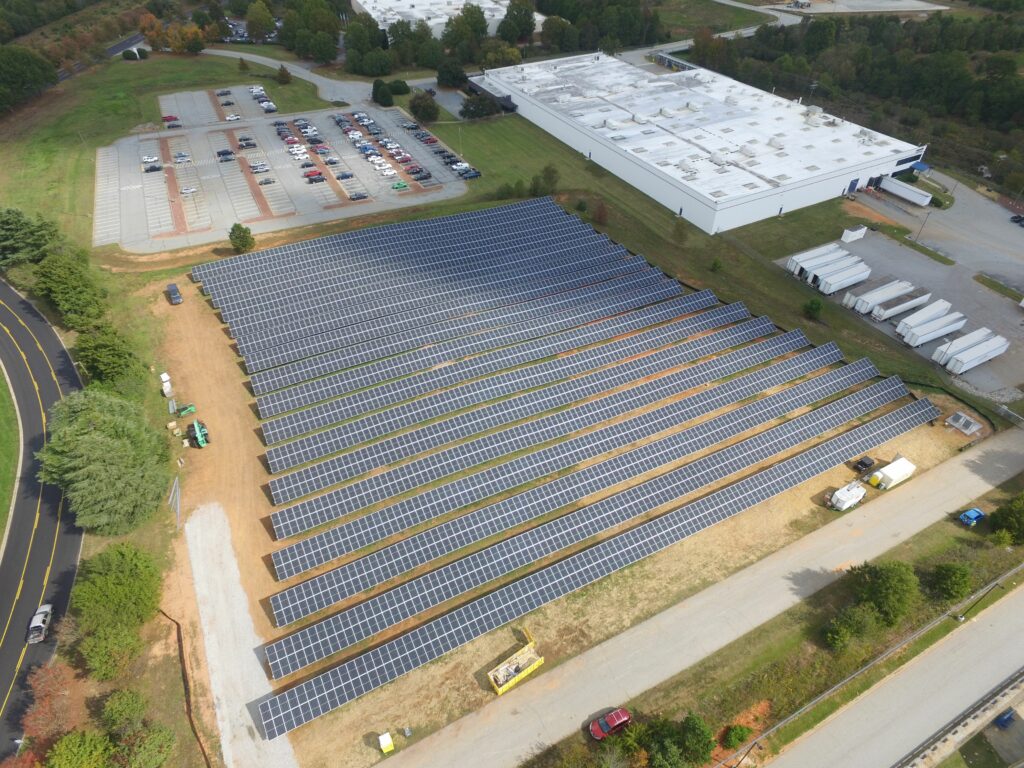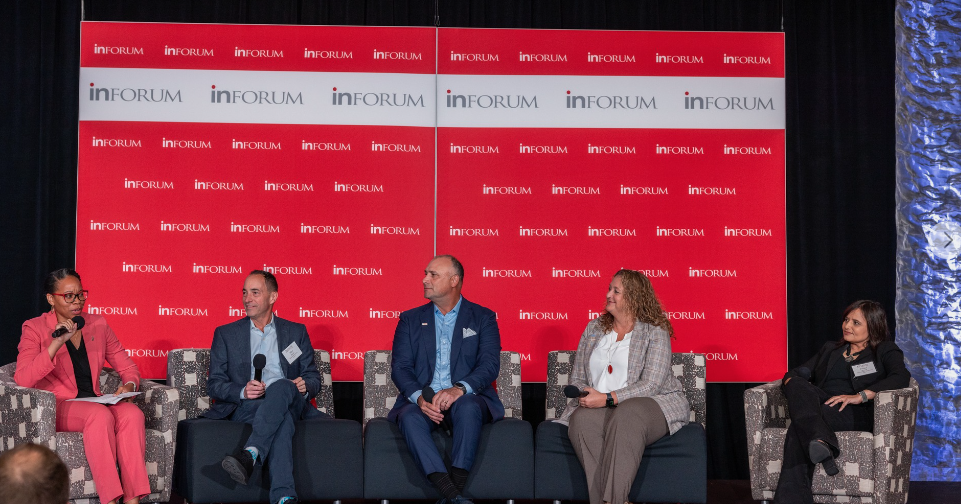Bosch and Sustainability in Detroit

Bosch is a Germany-based global supplier of technology and services that employs 421,000 employees worldwide in over 60 companies. It has technical centers in Farmington Hills and Plymouth. We spoke to Tracy Rosol, carbon neutrality coordinator for the U.S. and Canada, about how the company approaches and manages sustainability. Q: How does Bosch approach carbon neutrality? A: In 2019, our leadership announced that Bosch would become 100% carbon neutral. We established committees in a multitude of countries and put key people in place to procure new green energy and carbon credits to offset emissions. We created a database where locations worldwide submit information like how much energy, water, and gas each is using. Q: What is your role in this? A: Germany is our hub and all initiatives roll out from there and cascade down. My main role at Bosch is operations support analyst – and I am also the carbon neutrality coordinator for the US and Canada. We have a carbon neutrality coordinator in every country. Q: What are your goals in this role? A: We had requirements to be 100% carbon neutral, and we reached that goal in 2020. It was not an option to fail. The entire company – over 400 locations worldwide – has reached this goal. Q: Tell us about some of the internal initiatives Bosch has implemented to protect the environment. A: Bosch works to invent things to make life better. We are working on different fuel systems, working on recycling programs, and composting programs. Within the facilities, there are many initiatives to ensure we are landfill-free. We work with local amenities for plastic pickup. Our cafeterias use compostable items and composting bins. What trash we do have is incinerated. We are working on technologies to reduce energy usage in our plants and also in homes. All of our lighting has now been changed to LED and we use motion detectors. We are working to install solar on sites. Bosch purchases carbon credits on behalf of all employee flights in an effort to offset flight emissions. It’s built into travel costs. This is all driven globally. Q: What is the sustainability approach when it comes to products? A: Let’s just use a pen as an example of a product. Bosch’s goal, as well as the OEM’s, is to make sure the entire process of developing this pen is sustainable. This involves what materials are being used, where the materials are procured from, what ink is being used, the packaging, the transport … all along the chain every piece needs to be sustainable. We are also pushing all other businesses we do business with to utilize sustainable practices. Q: What are the challenges? A: The biggest challenge is ensuring where our renewable energy credits come from and making sure all locations are being issued the credits for the recs. The challenge is tracking it. This involves handling a lot of data across all locations. Additionally, the market is challenged because so many companies are looking to procure renewable energy. This causes the price to fluctuate, and it’s a constantly changing market. We don’t want to over-purchase or under-purchase so it’s a challenge to manage this. Q: How are partners vetted when it comes to sustainability? A: We have a third-party vendor that is directly connected to the markets so they do this for us. We also have an external legal company. Bosch is not an expert in these areas and won’t pretend to be, so we go to the experts and use them to assist us in all of this. Q: What advice do you offer to businesses looking to contribute to sustainability overall? A: Begin with low-hanging fruit. Take a look at where you are wasting energy and start to make a change. Things like putting in motion detectors and switching to LED are good places to start. Reduce where you can. Utilize composting. Put recycling processes in place. From there, find a reputable company to walk you through it. Companies like Honda have partnered with Detroit Edison to put on webinars. Attend the webinars and begin to learn. Find ways to lean on experts and use their resources. Bosch did not do this overnight. We started in 2016 and worked at it over time. Be sure to subscribe to our newsletter for regular updates on sustainable business practices in and around Detroit.
Automotive Leaders Discuss Navigating the Shift to Mobility

Automotive always has been a technology-driven industry, but in the next ten years, there is likely to be more change in the industry than there has been in the last hundred. And much of that change will be taking place in Michigan. That shift – which moves automotive toward becoming a more sustainable industry – was the topic of a Sept. 15, 2023, breakfast, “Navigating the Shift to Mobility – With Detroit as a Leader,” hosted by Inforum, a nonprofit focused on accelerating women’s careers. The themes included diversity, new opportunities that come with and from young and emerging talent, the power of partnerships, and the future of mobility. Panelists were: Aruna Anand, President and CEO, Automotive Group Sector; head of architecture and networking, Continental North America Kristen Tabar, group vice president, Advanced Mobility Research & Development, Toyota North America Paul Thomas, president, Mobility in Americas, Bosch (effective Jan. 1, 2024), and Alan Wexler, senior vice president, strategy, and innovation, General Motors Justine Johnson, chief mobility officer for the State of Michigan, moderated the discussion. Our takeaways follow: Thomas: When you look for talent, look for talent that looks different from you. Different countries, beliefs, and perspectives, you have to look for talent that has diverse opinions on solutions. The world isn’t as simple as you think it is sometimes. Taber: When students look for a job, remember that it is not a one-and-done deal. You may think this is your passion and you work in this space, but what we see is that people evolve. That cross-pollination and common way to move throughout your career and experience different aspects of this new mobility solution. It’s a completely different landscape that requires different skill sets and backgrounds. Anand: We need to see ourselves in those positions that we are aspiring to be. If you do not have representation, then you don’t know what it’s like and you don’t have the confidence to do something because it is not done. We need to increase the pipeline. Then you understand the reasons why you can’t do this or what else you can do to fix it. Wexler: We see a world with zero crashes, zero emissions, zero congestion. Taber: It is about the products that we put out, how we operate our businesses, and the ripple effect on our supply chains. We need very clear, measurable methods so we are using similar yardsticks. Thomas: We want to invest in communities, we invest in Detroit and the Midwest very heavily to bring mobility people into our companies. We are also always on the diversity journey. You will never know when you are done because diversity is something that you always must work on. Anand: We tend to want to be perfect before we try new things. We find reasons to not be good at things. What is stopping us? We need that coaching, mentoring, role models, all of that together to build that pipeline better. Wexler: (Talent recruitment) really starts with the “why.” … We need skillsets from other industries. We’re becoming more technology-oriented … we pioneer the innovations that move and connect people to what matters, so it’s who wants to be part of that purpose and do something impactful. Taber: We have to understand that none of us is going to be able to move the technology forward by ourselves. It is going to take partnerships that we probably wouldn’t have thought of ever before. Anand: If we can provide an environment that is flexible, then the talents will be able to grow. Thomas: The ecosystem is so large and the opportunities to do different things are available to each one of you in the room. There is so much information out there on how to get involved in mobility. Wexler: There isn’t another industry that has the same opportunity to heal the planet. Experience the full event here. Be sure to subscribe to our newsletter for regular updates on sustainable business practices in and around Detroit.


